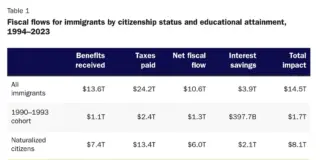BY
Earlier this month, American rating agency Standard & Poor Global (“S&P Global”) announced it had dropped its use of environmental, social, and governance (“ESG”) scores in assessing corporate borrowers, an initiative launched in 2021.
S&P said the ESG ratings had not been accepted by its customers. Critics have dubbed the practice as “woke capitalism.”
Unfortunately, the move to drop ESG scores may not be the victory for freedom as some may hope.
A 2017 study published in Business and Politics which comprehensively mapped the ownership in the US of the “Big Three” – BlackRock, Vanguard and State Street – found that together they constituted the largest shareholder in 88 per cent of the S&P 500 firms. “Through an analysis of proxy vote records, we find that the Big Three do utilise coordinated voting strategies and hence follow a centralised corporate governance strategy,” the researchers said.
The S&P 500 is a stock market index that tracks the stock performance of 500 of the largest companies listed on stock exchanges in the United States. As the Big Three have influence over 88 per cent of the largest corporations listed, it would be logical that S&P is merely following the lead of the Big Three’s strategies. So, what is the strategy?
How BlackRock – the world’s largest asset manager – frames its investment approach is a leading indicator. In March, BlackRock published its 2023 BlackRock Investment Stewardship report. There was no mention of “ESG” because according to Larry Fink, the term had been weaponised against them. So instead, BlackRock is focussing on “sustainable,” “climate-related risks” and “ greenhouse gas emissions.”
ESG and Social Credit Scoring System
The concept of ESG scores and the “sustainability” concept was introduced by the United Nations in 2006 with the publication ‘Principles for Responsible Investing’, which advocated investments that included ESG concepts. According to many critics, ESG is a social credit scoring system that is changing how businesses are measured by banking systems, investors, and government institutions. It is the beginning of a Chinese-style social credit system.
China’s social credit system is a combination of government-sponsored surveillance of people, businesses and government agencies through their social interactions. It is a credit rating system that assigns a trustworthiness score to its citizens and businesses, who could then be blacklisted or whitelisted based on the score itself.
In addition to being the introduction of a Chinese-style social credit scoring system, the ESG scoring system and similar systems are a corporate scheme that results in selecting which industries will be the winners and which the losers. Small businesses trying to meet these standards are unlikely to be able to compete with larger firms.
ESG in the UK
For those who would find a little more detail about how ESG policies negatively impact our everyday lives useful, below we have reproduced excerpts from an article recently published by The Telegraph:
ESG has now become embedded in kitemarking systems that rank companies according to their policies on issues like “Net Zero” and “Equality, Diversity and Inclusion” (EDI). ESG scores can affect how much investment they receive, and so carry financial clout. Organisations from Coutts to the Church of England’s investment bodies have signed up to the UN Principles for Responsible Investment, which incorporate ESG considerations into investment practices.
The Free Speech Union (FSU) reports that one in 20 of its cases are directly related to EDI training. For many, these cases have involved the loss of their livelihoods, and for others disruption to their financial lives. When you see de-banking banks talking about “purpose” and “values”, or HR departments dragging an employee through the wringer for wrongspeak, if you follow the trail far enough, you will likely reach ESG.
This situation may soon get worse. It was reported last week that the organisation “B Lab UK” is lobbying for a change in the law to further embed these practices in British companies. The so-called ‘Better Business Act’ would amend section 172 of the Companies Act 2006 to give directors a duty to consider “people and the planet,” not just profit. As we’ve seen with ESG policies, what this means in practice is the importation of woke ideology.
Groupthink in Britain is tightening, with a narrowly defined social justice orthodoxy taking root in companies, organisations and institutions across society. The cost of dissent is high. And as the backlash against it grows, far from seeing sense, many companies and banks seem to be doubling down. The Better Business Act would only accelerate this.
We face a toxic combination of circumstances that threaten our freedom of speech, religion, conscience and our right to transact. Under such circumstances, dissenters risk being effectively unpersoned, unable to lead a normal and free life. This Government needs to act now to protect our freedoms, before it’s too late.
Corporate wokeness is becoming a deeply sinister threat to our freedom, The Telegraph, 14 August 2023
BlackRock the World’s Largest
Thinking Ahead Institute’s research, conducted in conjunction with leading US investment newspaper Pensions & Investments, showed a further concentration of assets managed by the very largest organisations during 2021.
The research shows that BlackRock was both the world’s largest asset manager and the first to exceed US$10 trillion. While the Vanguard Group was ranked second, breaking the US$8 trillion mark, it was significantly ahead of Fidelity Investments and State Street Global – ranked third and fourth respectively – each with around US$4 trillion.
Among additional findings, the researchers found that assets allocated to ESG principles increased in 2021 by over 4 percentage points to reach over 60% of assets.
Launching the ESG Policy
In its 2020 letter to clients, BlackRock announced its ESG policy: “This year we will begin to offer sustainable versions of our flagship model portfolios, including our Target Allocation range of models. These models will use environmental, social, and governance (ESG)-)-optimised index exposures in place of traditional market cap-weighted index exposures. Over time, we expect these sustainability-focused models to become the flagships themselves.”
The following year, in his letter to CEOs, Fink hailed the success of BlackRock’s ESG policy:
Over the course of 2020, we have seen how purposeful companies, with better environmental, social, and governance (ESG) profiles, have outperformed their peers.
It’s not just that broad-market ESG indexes are outperforming counterparts. It’s that within industries – from automobiles to banks to oil and gas companies – we are seeing another divergence: companies with better ESG profiles are performing better than their peers, enjoying a “sustainability premium.”
As you issue sustainability reports, we ask that your disclosures on talent strategy fully reflect your long-term plans to improve diversity, equity, and inclusion, as appropriate by region … Questions of racial justice, economic inequality, or community engagement are often classed as an “S” issue in ESG conversations. But it is misguided to draw such stark lines between these categories. For example, climate change is already having a disproportionate impact on low-income communities around the world – is that an E or an S issue?”
But two years after it was launched, ESG was not going as well as Fink had made out.
ESG Assets Put on Ice but Sustainable Assets Grow
Companies have been pressured by large shareholders like Blackrock and Vanguard to adhere to the ESG standards, but some companies are resisting. Additionally, Attorney Generals in 19 US states have challenged the ESG standards for being politicised and reducing the return on their state pension funds. The US Congress is also investigating the way ESG standards are being used.
BlackRock’s support for shareholder proposals focused on environmental and social issues plummeted for a second consecutive year, even as the number of proposals soared, financial news outlet Barron’s reported last week. A report from BlackRock on Wednesday said it supported just 26 of 399 shareholder proposals tied to climate and other environmental matters this proxy season as it says the quality of proposals declined overall.
Business Insider reported on Friday that in September 2022, BlackRock filed an application with the US Securities and Exchange Commission (“SEC”) to launch a new exchange traded fund (“ETF”). In essence, it is an ESG version of its major $32 billion municipal bond fund.
BlackRock competitors have launched similar funds. This year Goldman Sachs launched its first municipal bond ETF, which takes into account social and environmental factors.
The SEC typically responds to ETF providers’ initial filings within about three months. But BlackRock has filed to extend the period for debuting the “iShares ESG Aware ICE-HIP Muni Bond ETF” nearly every month since last autumn.
The delay comes as ESG investing criticisms have unfolded most potently at the US state level. Critics including a string of state attorneys general and lawmakers have taken aim at BlackRock over its ESG investment approach.
US presidential candidate Vivek Ramaswamy, for example, recently tweeted:
BlackRock, State Street, & Vanguard represent arguably the most powerful cartel in human history: they’re the largest shareholders of nearly every major public company (even of each other) & they use *your* own money to foist ESG agendas onto corporate boards – voting for “racial equity audits” & “Scope 3 emissions caps” that don’t advance your best financial interests.
This raises serious fiduciary, antitrust, and conflict-of-interest concerns.
As President, I will cut off the real hand that guides the ESG movement – not the invisible hand of the free market, but the invisible fist of government itself.
The backlash against ESG is real and likely to increase. In a recent survey by The Conference Board of 125 large US companies, nearly half said they have already experienced ESG backlash, and 61% expect it to persist or intensify in the next two years.
“There are powerful business reasons why companies focused on ESG issues in the first place – and those remain,” Barron’s reported. “Indeed, with upcoming SEC regulations on climate and the EU’s Corporate Sustainability Reporting Directive that will directly affect an estimated 3,000 US firms, companies cannot afford to put ESG to the side.”
According to Barron’s, investors may see companies change how they talk about ESG. Nearly half the companies surveyed are now talking less about ESG and more about “sustainability,” “corporate responsibility,” or “responsible growth.”
In his annual letter to investors on 15 March 2023, Fink did not use the acronym ESG, focusing instead on investor choice around sustainable investing and the energy transition. Fink recently claimed he stopped using the term “ESG” because it’s grown weaponised against BlackRock.
Instead of ESG ETFs, BlackRock has recently launched “sustainably” labelled products. BlackRock said that it debuted more than 50 “sustainable” ETFs and index mutual funds in the US and other markets last year, and overall, it has 254 “sustainable” ETFs globally with 40 of those listed in the US. BlackRock’s ETF and index investments business, led by Salim Ramji, drew $220 billion of net inflows last year.
As Pi Online noted, this year’s 2023 report from the BlackRock Investment Stewardship (“BIS”) division highlighted the following five priorities: corporate board quality and effectiveness; strategy, purpose and financial resilience; incentives aligned with financial value creation; climate and natural capital; and company impacts on people. The priorities were identical to the BIS 2022 report issued last February.
In the 2023 report, there is no mention of “ESG” or “sustainable,” however, as priorities, there is a focus on climate action, climate-related risk, and natural capital.
According to BIS, “natural capital refers to the living and non-living components of ecosystems that contribute to the provision of goods and services to people … While natural capital is a broad term, we focus on three key components – land use, water, and biodiversity.”
Why would they prioritise biodiversity, the variety and abundance of life on earth? BIS’ report may hold a clue: “Estimates suggest that ecosystem services from biodiversity are worth an estimated USD 150 trillion annually.”
And, BIS is tracking companies’ greenhouse gas emissions. It provides a list of 1000+ “carbon-intensive” companies in which BlackRock’s clients hold stocks and shares. The list is bombastically titled ‘Our Climate Focus Universe’.
So, has ESG gone away or is BlackRock, and predictably 88 per cent of the S&P 500 companies, merely switching the terminology used to describe it – from ESG to sustainable and climate?
Sources for this article include:
- What Is ESG? Door to Freedom, 14 July 2023
- Corporate “wokeism” backlash drives S&P Global to dump ESG metrics in credit quality assessments, News Target, 15 August 2023
- BlackRock Retreats from ESG Agenda! WLT Report, 25 August 2023
Featured image: Larry Fink “ashamed” to be part of ESG political debate (left). Here’s how the world’s largest money manager is overhauling its strategy because of climate change (right).

Disclaimer: We at Prepare for Change (PFC) bring you information that is not offered by the mainstream news, and therefore may seem controversial. The opinions, views, statements, and/or information we present are not necessarily promoted, endorsed, espoused, or agreed to by Prepare for Change, its leadership Council, members, those who work with PFC, or those who read its content. However, they are hopefully provocative. Please use discernment! Use logical thinking, your own intuition and your own connection with Source, Spirit and Natural Laws to help you determine what is true and what is not. By sharing information and seeding dialogue, it is our goal to raise consciousness and awareness of higher truths to free us from enslavement of the matrix in this material realm.
 EN
EN FR
FR


























